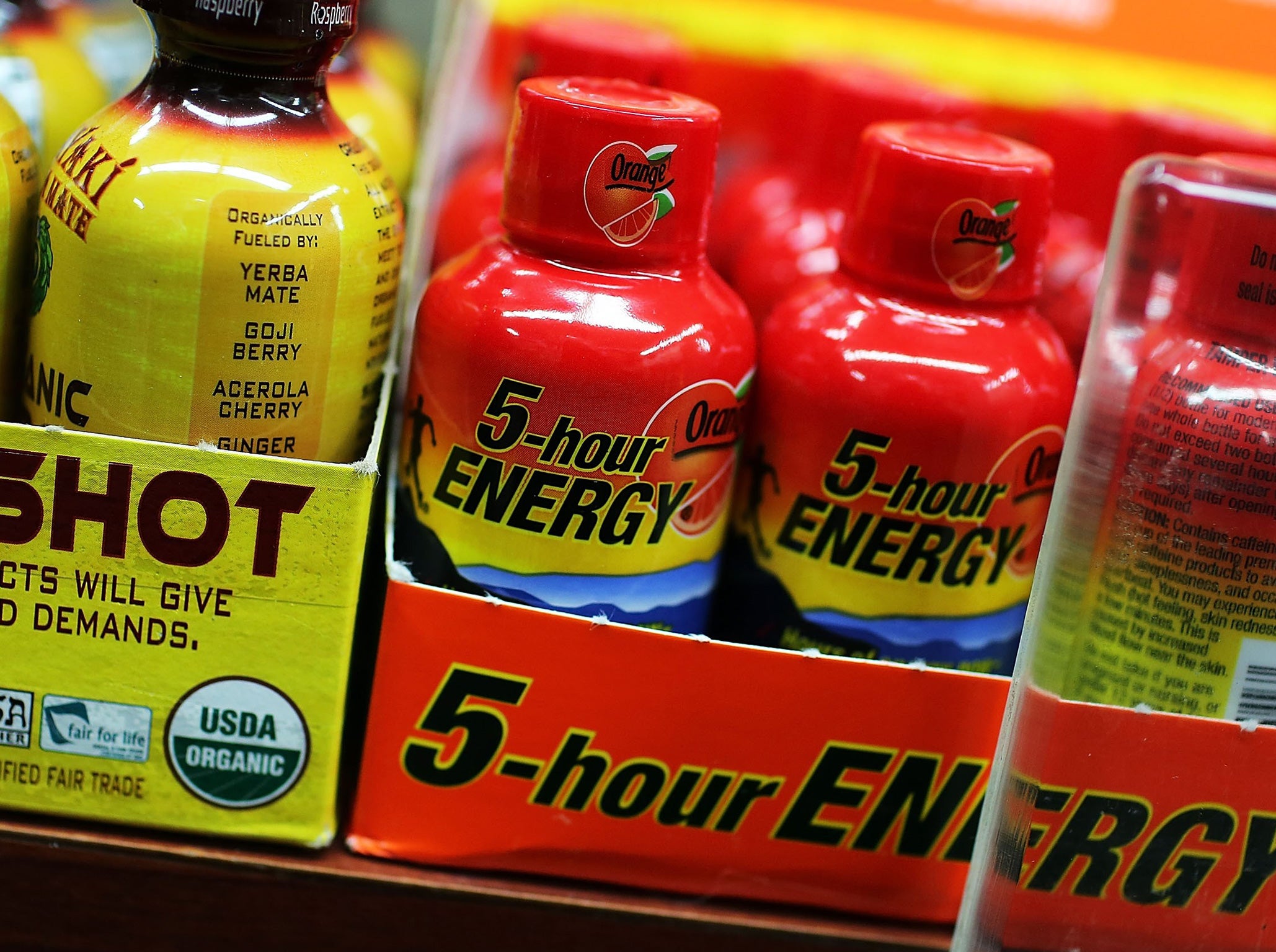Health alert over energy 'shot' drinks
MP calls for ban on sale to under-16s after 13 deaths in the US have sparked safety questions

Your support helps us to tell the story
From reproductive rights to climate change to Big Tech, The Independent is on the ground when the story is developing. Whether it's investigating the financials of Elon Musk's pro-Trump PAC or producing our latest documentary, 'The A Word', which shines a light on the American women fighting for reproductive rights, we know how important it is to parse out the facts from the messaging.
At such a critical moment in US history, we need reporters on the ground. Your donation allows us to keep sending journalists to speak to both sides of the story.
The Independent is trusted by Americans across the entire political spectrum. And unlike many other quality news outlets, we choose not to lock Americans out of our reporting and analysis with paywalls. We believe quality journalism should be available to everyone, paid for by those who can afford it.
Your support makes all the difference.Health authorities in the United States have launched an investigation into concentrated energy drinks after the deaths of 13 people have raised questions about their safety. And yesterday two MPs called for urgent action in Britain; one of whom wants a temporary ban on their sale to under-16s until all risks have been assessed.
The US public health regulator, the Food and Drug Administration (FDA), is looking into a highly potent over-the-counter product called 5-Hour Energy, which is available in Britain. A recent US government survey suggested that energy drinks could be behind as many as 13,000 Emergency Room visits a year.
Since 2009, the FDA has received 90 complaints which refer specifically to 5-Hour Energy. More than 30 of them involved life-threatening injuries, such as heart attacks and convulsions. In one case, a consumer allegedly suffered a spontaneous miscarriage. "The FDA is continuing to investigate reports of illness, injury or death of people who took products marketed under the label 5-Hour Energy," a spokesman told the news agency AFP, promising swift action if the drink is proven to have caused any deaths.
The product, which was invented in 2004 and is made largely in Michigan, is sold in 2oz containers the size of a shot, and marketed as a pick-me-up. As well as a hefty amount of sugar, each bottle contains 215mg of caffeine, the same as roughly two cups of coffee. Ingredients also include large quantities of B vitamins, and a substance called Taurine, which is also found in the fizzy drink Red Bull. The size of each bottle means some consumers are believed to be consuming multiple "shots", which may exacerbate potential side-effects.
The Conservative MP Rob Wilson said: "This news from the US is significant. I believe that these high-energy drinks may well pose a significant health threat to children and young adults." Current government advice is that "children, or other people sensitive to caffeine, should only consume in moderation drinks with high levels of caffeine". Urgent research into energy shots is needed to "persuade the Government and the drinks industry to act," according to Mr Wilson. "While that research is being conducted I would like to see a temporary ban on their sale to under-16s. If this isn't forthcoming, I would urge sellers to impose their own temporary ban," he added.
The Labour MP David Hanson called on the Government to assess the "level of abuse of this type of drink" to "inform future policy", citing anxiety about risks if the drinks are "abused or used to excess".
The market for energy drinks has exploded in recent years, on both sides of the Atlantic. In October, the FDA announced that it was investigating five deaths and one non-fatal heart attack linked to the consumption of Monster Energy, a soft drink sold in large cans. In 2010, it banned alcoholic beverages containing high levels of caffeine. The FDA is keen to stress that until its investigations are concluded, it cannot be sure that specific energy drinks are causing medical problems, noting that: "the existence of an adverse event report does not necessarily mean that the product identified in the report actually caused the adverse event".
Living Essentials, the company that makes 5-Hour Energy, describes the product as a "dietary supplement" rather than an energy drink. In a statement on its website, the makers claim the drink "contains about as much caffeine as a cup of the leading premium coffee". The company says it is the world's top-selling energy shot.
It adds that people are recommended not to have any more than two shots a day "spaced several hours apart" and that it is "unaware of any deaths proven to have been caused by the consumption of 5-hour energy."
Living Essentials did not respond to requests for comment yesterday. In a statement, the British Soft Drinks Association said: "High-caffeine soft drinks and their ingredients have been carefully studied by the regulatory authorities and have been recognised as safe."
It added: "The industry code of practice requires that energy shots are formulated and labelled in such a way that the daily caffeine intake from them will not exceed 160mg. This is achieved by considering the caffeine content per package in combination with stating on the label: a) the portion of the product recommended for daily consumption and b) the warning not to exceed the stated recommended daily dose."
Join our commenting forum
Join thought-provoking conversations, follow other Independent readers and see their replies
Comments